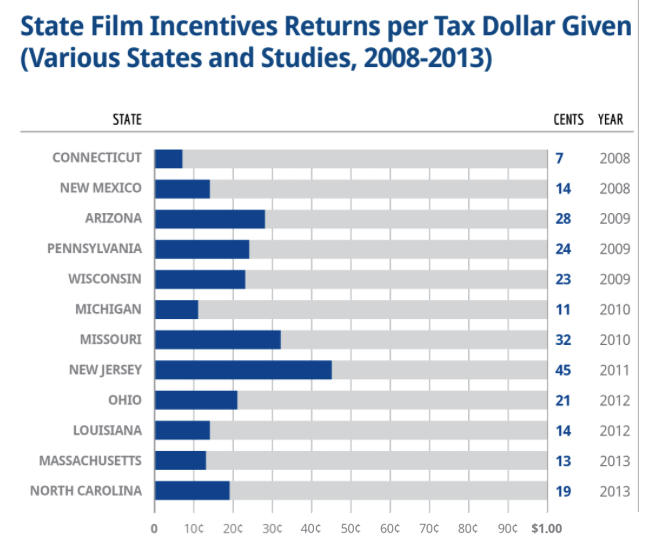The newly released Senate budget would retain the Film and Entertainment Grant Fund, with a bit of a twist. As Carolina Journal reported, the budget would make $15 million of the $30 million grant a permanent feature.
While this isn’t as bad as earlier proposals to jack the fund up to $60 million, it’s still another step in the wrong direction.
There are plenty of reasons the House should zero out that fund entirely.
State reviews of their own film incentive programs consistently find they are net money losers. NC’s previous program was returning only 19 cents per dollar.

Returns like that would make only Monty Brewster jealous. It’s why more and more states are dropping out of this game.
Spending dollars to get dimes means you’re not doing “economic development,” you’re just giving other people’s money away to people you like. Oh, and relying on media, who also like them, to join you in saying you’re doing economic development.
In his 2016 study in the academic journal The American Review of Public Administration, Prof. Michael Thom of the University of Southern California found that state film incentive programs have no impact on their states’ economies or industries. They basically just benefit film companies and current workers.
The All-Comers Economic Incentive
Is there a way to make it even more affordable for film companies to do business in North Carolina without being unfair to other taxpayers? Especially businesses who are already here and already creating jobs and economic benefits for North Carolinians? Yes, there is, and in fact state leaders are already doing it.
By giving tax cuts to all industries rather than just this one or that one, North Carolina has had brisk economic growth, outpacing national and regional averages. It’s created an environment where people can produce economic development, and they’ve responded.
We’ve also had four consecutive years of budget surpluses. We’re considered a national model for tax reform.
Plus, this way is empirically sound, not just “sounds good.”

